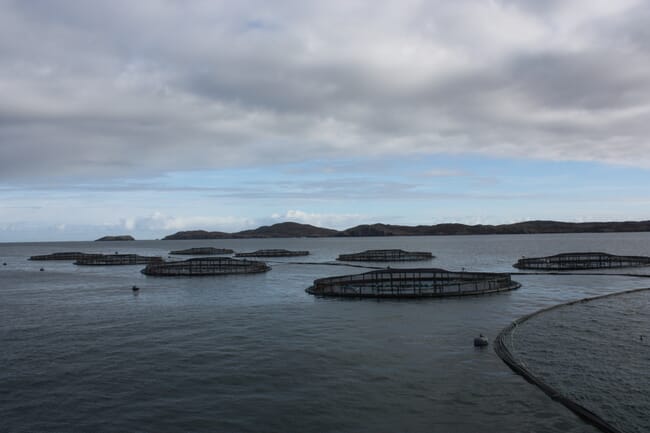
As part of a commitment to the wider marine environment, trade body Salmon Scotland is encouraging people to report waste, regardless of the source, so that salmon farmers close to the location can help remove it.
A dedicated inbox - reportdebris@salmonscotland.co.uk – has been created, and reports should ideally contain a ‘what3words’ exact location and photo.
The information will be collated centrally and reported to local teams for recovery - even though in most cases marine debris does not come from salmon farms, but rather from towns and cities, other countries, and sometimes other continents, brought here by prevailing winds and tides.
The new measures cover the entire area where farms are based – the north-west Highlands, the Western Isles, Argyll and Bute, Shetland and Orkney.
On top of the reporting tool, member companies are also proactively helping to care for their local environment with regular beach clean-ups and other initiatives.
Last year, Mowi carried out 79 beach cleans around the areas where it farms, while Scottish Sea Farms made its annual participation in the Marine Conservation Society’s Great British Beach Clean a company-wide effort.
While most marine debris comes from littering or incorrect disposal of plastics on land, extreme weather in the harsh Scottish waters can occasionally cause equipment to break loose from a salmon farm.
Salmon Scotland’s sustainability charter includes a pledge to “take every step possible to avoid marine debris from our farms and recover any items promptly regardless of their origin”.
Tavish Scott, chief executive of Salmon Scotland, said: “Raising healthy fish relies on a healthy habitat, so it’s in all our interests to protect our shared environment.
“Salmon farmers are committed to their local communities and that goes far beyond creating local jobs and producing nutritious food.
“By co-ordinating our efforts to collect marine debris – regardless of where it has come from – we can make a positive difference.
“There is also a concerted drive from our sector to prevent any marine debris at source which on rare occasions can be caused by instances of extreme weather.
“We’re privileged to work on some of the most beautiful coastlines in Scotland and we are committed to being good neighbours.”


